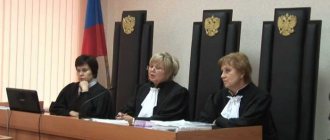Commentary to Art. 278 of the Criminal Code of the Russian Federation
1. In accordance with the Constitution, state power in the Russian Federation is exercised by the President of the Russian Federation, the Federal Assembly of the Russian Federation (Federation Council and State Duma), the Government of the Russian Federation, and the courts of the Russian Federation. State power in the constituent entities of the Russian Federation is exercised by the state authorities formed by them.
Consequently, the direct object of the violent seizure or retention of power is the social relations that develop regarding and in connection with the protection of the foundations of the political system of the Russian Federation, the constitutional foundations of state power and the state system.
An additional object is human life and health, which are endangered when violence is used.
2. The objective side of the crime can be expressed in actions aimed, firstly, at the forcible seizure of power, secondly, at the forcible retention of power in violation of the Constitution and, thirdly, at the forcible change of the constitutional system of the Russian Federation.
The commission of any of the above actions will indicate the fulfillment of the objective side of the forcible seizure or forcible retention of power. In this case, the crime is considered completed regardless of the implementation of the set goals (seizing or retaining power, changing the constitutional system of the Russian Federation), i.e. the corpus delicti is formal.
The violent seizure of power is the seizure of power by force (mostly armed) by a person (persons), groups, or organizations to which the power did not belong, bypassing the legally established procedure for vesting power. Actions aimed at seizing power can be expressed in the physical elimination of persons exercising legitimate powers of power, or in their forced isolation and the proclamation in their place of those who carry out illegal actions.
Forcible retention of power is its forcible retention in violation of the Constitution by persons to whom it previously belonged by law. Actions aimed at forcibly retaining power can also be expressed in the fact that after seizing power, the perpetrators interfere with the functioning of the constitutional system of power. Forcible retention of power in this case may mean that those who seized power control the adoption and execution of their decisions through violent actions, and the holders of legitimate power are deprived of the opportunity to exercise their functions and competence.
A forced change in the constitutional system of the Russian Federation is an illegal change in the structure of life of society and the state established by the Constitution.
3. A distinctive feature of this crime is the commission of any of these actions necessarily in a violent manner. The most extreme form of violence is the use of weapons. However, if such violence takes the form of an armed rebellion for the purpose of overthrowing or forcibly changing the constitutional system of the Russian Federation, then the act is fully covered by the elements of armed rebellion (Article 279 of the Criminal Code of the Russian Federation) and additional qualifications under Art. 278 of the Criminal Code does not require it, since the goal of overthrowing the constitutional order is a means of subsequent seizure of power.
It should also be borne in mind that the use of violence in the commented article does not cover causing death (regardless of the form of guilt) according to general and special norms, terrorist activity and requires additional qualification under the relevant articles of the Special Part of the Criminal Code of the Russian Federation.
4. The crime provided for in the commented article is similar to high treason (Article 275 of the Criminal Code of the Russian Federation), however, it cannot be classified as high treason, since it is not related to treason in favor of another state.
Therefore, only if the perpetrators commit actions to seize power in contact with a foreign state, foreign organization or their representatives, together with them, the act should be classified as a set of crimes, namely, high treason in the form of providing assistance to a foreign state, foreign organization or their representatives in carrying out hostile activities to the detriment of the security of Russia and as violent actions aimed at seizing power.
5. The subjective side of the crime is characterized by direct intent and a special purpose - an unconstitutional seizure of power, an unconstitutional retention of power or a change in the constitutional system of the Russian Federation by force. The special purpose specified in the disposition of the article is a mandatory feature, the absence of which excludes liability for this crime.
The motive for qualification does not matter.
6. The subject of the crime is general - a sane individual who has reached the age of 16. In this case, the subject of the forcible retention of power is the former holder of state power, who is obliged, according to the Constitution, to transfer it to other persons or persons.
Judicial practice: sentences and punishment under Art. 278 of the Criminal Code of the Russian Federation
- Resolution of the Plenum of the Supreme Court of the Russian Federation dated... PLENARY OF THE SUPREME COURT OF THE RUSSIAN FEDERATION DECISION dated December 27, 2002 N 29 ON JUDICIAL PRACTICE IN CASES OF THEFT,...
- Decision of the Supreme Court: Resolution No. 310P13 dated... DECISION OF THE PRESIDIUM OF THE SUPREME COURT OF THE RUSSIAN FEDERATION Case No. 310-P13 Moscow January 23, 2014 Presidium of the Supreme Court of the Russian Federation...
- Decision of the Supreme Court: Determination N 203-APU17-21... THE SUPREME COURT OF THE RUSSIAN FEDERATION Case No. 203-APU17-21 APPEAL DECISION Moscow August 31, 2022 Judicial Collegium for Military Personnel of the Supreme...
- Ruling of the ECtHR dated 02/14/2017 EUROPEAN COURT OF HUMAN RIGHTS THIRD SECTION CASE “MASLOVA VS. RUSSIAN FEDERATION” (Complaint No. 15980/12) JUDGMENT…
- Ruling of the Constitutional Court of the Russian Federation dated March 13, 2018 N 578-O THE CONSTITUTIONAL COURT OF THE RUSSIAN FEDERATION RULING dated March 13, 2018 N 578-O ON THE REFUSAL TO ACCEPT A CITIZEN’S COMPLAINT FOR CONSIDERATION...
- Decision of the Supreme Court: Determination No. 56-КГ16-46 dated... THE SUPREME COURT OF THE RUSSIAN FEDERATION No. 56-КГ16-46 DETERMINATION Moscow March 6, 2017 Judicial Collegium for Civil Cases of the Supreme Court...
- Decision of the Supreme Court: Determination No. 56-КГ16-46 dated... THE SUPREME COURT OF THE RUSSIAN FEDERATION No. 56-КГ16-46 DETERMINATION Moscow March 6, 2017 Judicial Collegium for Civil Cases of the Supreme Court...
- Resolution of the Plenum of the Supreme Court of the Russian Federation dated... PLENARY OF THE SUPREME COURT OF THE RUSSIAN FEDERATION DECISION of November 15, 2016 N 48 ON THE PRACTICE OF APPLICATION BY COURTS OF LEGISLATION GOVERNING FEATURES...
- Resolution of the Plenum of the Supreme Court of the Russian Federation dated... PLENAUM OF THE SUPREME COURT OF THE RUSSIAN FEDERATION DECISION dated June 25, 2022 N 18 ON JUDICIAL PRACTICE IN CASES OF CRIMES,...
- Resolution of the Presidium of the Supreme Court of the Russian Federation dated... PRESIDIUM OF THE SUPREME COURT OF THE RUSSIAN FEDERATION DECISION dated December 5, 2018 N 126-P18 ON RESUMING PROCEEDINGS IN THE CASE DUE TO NEW...
Article 278. Forcible seizure of power or forcible retention of power
Appeal ruling of the Supreme Court of the Russian Federation dated July 12, 2017 N 205-APU17-21 According to the note to Art. 205.3 of the Criminal Code of the Russian Federation, a person who has committed a crime under Art. 205.3 of the Criminal Code of the Russian Federation, is exempt from criminal liability if it informed the authorities about the completion of training, knowingly for the student, conducted for the purpose of carrying out terrorist activities or committing one of the crimes provided for in Art. Art. 205.1, 206, 208, 211, 277, 278, 279, 360 and 361 of the Criminal Code of the Russian Federation, contributed to the disclosure of the crime committed or the identification of other persons who underwent such training, carried out, organized or financed such training, as well as the places where it was carried out and if in it actions do not contain any other corpus delicti.
Resolution of the Presidium of the Supreme Court of the Russian Federation dated March 6, 2019 N 186-P18
Chernova Natalya Yurievna, ... was detained on December 14, 2004 in accordance with Art. Art. 91, 92 of the Code of Criminal Procedure of the Russian Federation on suspicion of committing crimes under Part 2 of Art. 167, art. 214, art. 278 of the Criminal Code of the Russian Federation. By the decision of the judge of the Khamovnichesky District Court of Moscow dated December 17, 2004, Chernova N.Yu. a preventive measure in the form of detention was chosen.
Appeal ruling of the Judicial Collegium for Military Personnel Cases of the Supreme Court of the Russian Federation dated June 27, 2019 N 201-APU19-18
Thus, participation in the activities of a terrorist organization is understood as the commission by a person of deliberate actions related to the continuation or resumption of the activities of this organization, and participation in a terrorist community is understood as the inclusion of a person in a stable group of two or more persons with the intention of participating in terrorist activities or preparation or commission of one or more crimes provided for in Articles 205.1, 205.2, 206, 208, 211, 220, 221, 277, 278, 279, 360 and 361 of the Criminal Code of the Russian Federation, or other crimes for the purpose of promoting, justifying and supporting terrorism, including Art. 205.5 of the Criminal Code of the Russian Federation is not specified, as well as participation in the preparation for or in the commission of such crimes, as well as the performance by a person of functional duties to ensure the activities of such a community. When a participant in a terrorist organization commits a specific crime, his actions are subject to qualification according to the totality of crimes provided for in Part 2 of Art. 205.5 of the Criminal Code of the Russian Federation and the corresponding article of the Special Part of the Criminal Code of the Russian Federation, which was established in this criminal case.
Appeal ruling of the Judicial Collegium for Military Personnel Cases of the Supreme Court of the Russian Federation dated July 23, 2019 N 201-APU19-25
Rakhmonkhodzhaev Zikrullokhon Faizullokhodzhaevich, ... convicted by the verdict of the Moscow City Court dated July 30, 2014 (taking into account the changes made by the appeal ruling of the Judicial Collegium for Criminal Cases of the Supreme Court of the Russian Federation dated December 11, 2014) for committing crimes under Part 1 of Art. . , art. 278 and part 1 of Art. 222 of the Criminal Code of the Russian Federation, to 7 years of imprisonment in a maximum security correctional colony (the term of serving the sentence was decided to be calculated from November 7, 2012),
Appeal ruling of the Judicial Collegium for Military Personnel Cases of the Supreme Court of the Russian Federation dated 09/03/2019 N 205-APU19-27
Within the meaning of Art. 205.1 of the Criminal Code of the Russian Federation, the financing of terrorism should be recognized, along with the provision of financial services, the provision or collection of not only money, but also material resources with the understanding that they are intended to finance the organization, preparation or commission of at least one of the crimes provided for in Articles 205, 205.1, 205.2, 205.3, 205.4, 205.5, 206, 208, 211, 220, 221, 277, 278, 279 and 360 of the Criminal Code of the Russian Federation, or for financing or other material support of a person for the purpose of committing at least one of these crimes, or to support an organized group, illegal armed group, criminal community (criminal organization) created or being created to commit at least one of these crimes.
Appeal ruling of the Judicial Collegium for Military Personnel Cases of the Supreme Court of the Russian Federation dated September 25, 2019 N 201-APU19-44
Within the meaning of Art. 205.1 of the Criminal Code of the Russian Federation, the financing of terrorism should be recognized, along with the provision of financial services, the provision or collection of not only money, but also material resources with the understanding that they are intended to finance the organization, preparation or commission of at least one of the crimes provided for in Articles 205, 205.1, 205.2, 205.3, 205.4, 205.5, 206, 208, 211, 220, 221, 277, 278, 279 and 360 of the Criminal Code of the Russian Federation, or for financing or other material support of a person for the purpose of committing at least one of these crimes, or to support an organized group, illegal armed group, criminal community (criminal organization) created or being created to commit at least one of these crimes.
Appeal ruling of the Judicial Collegium for Military Personnel Cases of the Supreme Court of the Russian Federation dated October 22, 2019 N 208-APU19-10
In accordance with Art. 205.1 of the Criminal Code of the Russian Federation, the financing of terrorism should be recognized, along with the provision of financial services, the provision or collection of not only money, but also material resources with the understanding that they are intended to finance the organization, preparation or commission of at least one of the crimes provided for in Articles 205, 205.1, 205.2, 205.3, 205.4, 205.5, 206, 208, 211, 220, 221, 277, 278, 279 and 360 of the Criminal Code of the Russian Federation, or for financing or other material support of a person for the purpose of committing at least one of these crimes, or to support an organized group, illegal armed group, criminal community (criminal organization) created or being created to commit at least one of these crimes.
Appeal ruling of the Judicial Collegium for Criminal Cases of the Supreme Court of the Russian Federation dated October 31, 2019 N 20-APU19-13
convicted on July 11, 2002 by the Stavropol Regional Court under Part 2 of Art. 210, part 2 art. 208, part 1 art. Art. 278, part 3 art. 222 of the Criminal Code of the Russian Federation to 10 years in prison to be served in a maximum security colony,
Appeal ruling of the Judicial Collegium for Military Personnel Cases of the Supreme Court of the Russian Federation dated December 5, 2019 N 224-APU19-11
The argument that the case has not established the involvement of Shaykhvaliev, R. and G. in the preparation or commission of one of the crimes provided for in the note to Art. 205.1 of the Criminal Code of the Russian Federation is untenable, since it is decisive for establishing the fact of the commission of a crime under Part 4 of Art. 205.1 of the Criminal Code of the Russian Federation is confirmation by the totality of collected evidence of the convicted person’s awareness that the funds, the collection and transfer of which he organized, are intended to finance the organization, preparation or commission of at least one of the crimes provided for in Articles 205, 205.1, 205.2, 205.3, 205.4, 205.6, 206, 208, 211, 220, 221, 277, 278, 279 and 360 of the Criminal Code of the Russian Federation, or for financing or other material support of a person for the purpose of committing at least one of these crimes, or for providing for an organized group, illegal armed group , a criminal community (criminal organization) created or being created to commit at least one of these crimes.
Resolution of the Presidium of the Supreme Court of the Russian Federation dated July 17, 2019 N 46P19
According to the verdict of the Volga District Military Court dated July 30, 2018, Mustafayev F.R. convicted under Part 2 of Art. 282.2 of the Criminal Code of the Russian Federation (as amended by Federal Law of December 7, 2011 N 420-FZ) to a fine of 70,000 rubles (exempt from this penalty on the basis of clause 3, part 1, article 24 of the Code of Criminal Procedure of the Russian Federation due to the expiration of the statute of limitations criminal prosecution), under Part 1 of Art. , art. 278 of the Criminal Code of the Russian Federation - to 7 years of imprisonment with restriction of freedom for a period of 1 year, with the establishment of restrictions and the imposition of obligations specified in the sentence, under Part 2 of Art. 205.5 of the Criminal Code of the Russian Federation (as amended by Federal Law No. 302-FZ of November 2, 2013) - to 7 years in prison with a fine of 400,000 rubles, on the basis of Part 3 of Art. of the Criminal Code of the Russian Federation for the totality of crimes provided for in Part 1 of Art. , art. 278, part 2 art. 205.5 of the Criminal Code of the Russian Federation - to 11 years of imprisonment in a strict regime correctional colony with restriction of freedom for a period of 1 year, with the establishment of restrictions and the imposition of obligations specified in the sentence, with a fine of 400,000 rubles.
Appeal ruling of the Judicial Collegium for Military Personnel Cases of the Supreme Court of the Russian Federation dated January 23, 2020 N 225-APU19-6
In accordance with Art. 205.1 of the Criminal Code of the Russian Federation, the financing of terrorism should be recognized, along with the provision of financial services, the provision or collection of not only money, but also material resources with the understanding that they are intended to finance the organization, preparation or commission of at least one of the crimes provided for in Articles 205, 205.1, 205.2, 205.3, 205.4, 205.5, 206, 208, 211, 220, 221, 277, 278, 279 and 360 of the Criminal Code of the Russian Federation, or for financing or other material support of a person for the purpose of committing at least one of these crimes, or to support an organized group, illegal armed group, criminal community (criminal organization) created or being created to commit at least one of these crimes.




